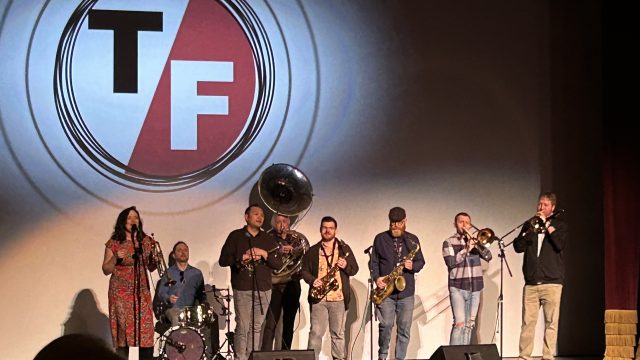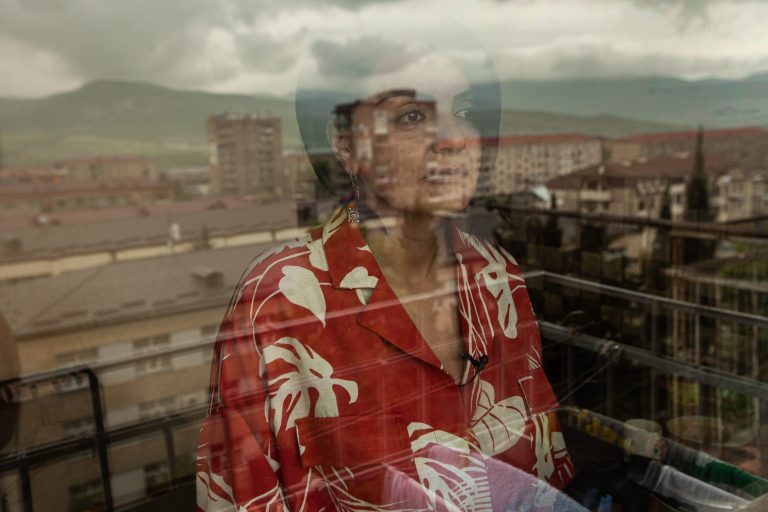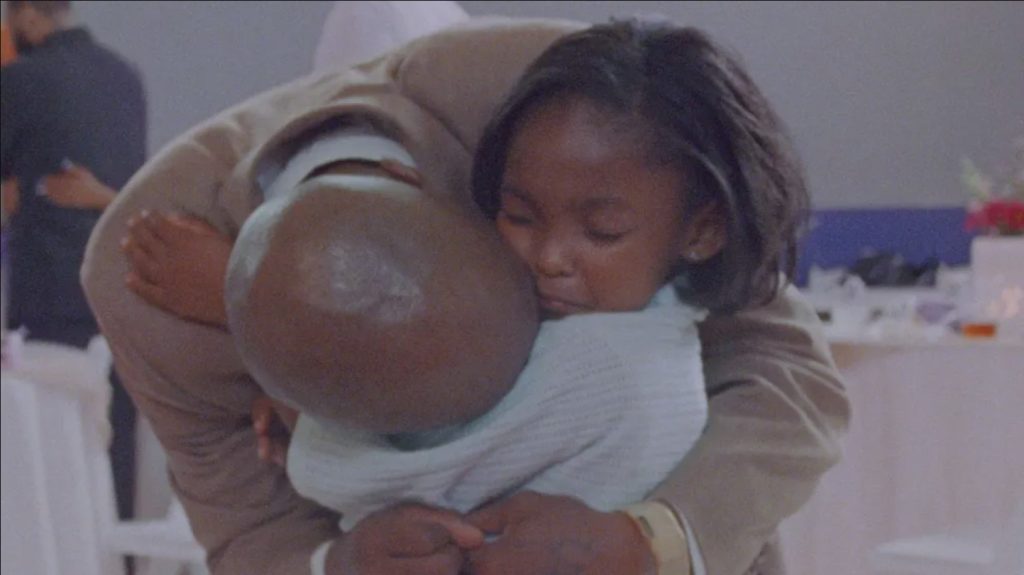The winter coat I packed for the first weekend of March in Columbia, Missouri was unnecessary. Previous True/False festivals required stamina for the frigid ticketless in the Q lines and a legion of cheery volunteers to clear the downtown sidewalks of snow. But this year temperatures tended near the 80s for much of the festival and the lines outside Sparky’s Homemade Ice Cream made sense beyond their unique flavor offerings (first fest recommendation: OREO Speedwagon, chocolate ice cream with cookies and espresso beans). Even Mother Nature – her temperament continually altered by her rudest houseguests – contributed to the festival’s annual theme of questioning what’s true, what’s real, what’s permanent.
Impermanence has rarely been captured so starkly as by Emily Mkrtichian in There Was, There Was Not. In the Republic of Artsakh, an unrecognized country recovering from war, Mkrtichian’s film follows four women working for the betterment of their shaken home. A political activist running for office, a martial artist with Olympic aspirations, an advocate for victims of domestic violence, and a minesweeper on clean-up duty from the war – the film follows the day-to-day effort that inches them closer to their aspirations in uncertain times. Suddenly, war breaks out again, and all ambitions of the film and the women crumble.
Once their daily routines become struggles for life and identity, the before-and-after effect on these subjects is striking – not just their circumstances but their postures, their expressions, their words – and a powerful expression of what the documentary camera can capture. Truffaut famously commented that anti-war movies can’t help but become pro-war as they capture and use the drama of battle. Documentaries, though (usually) less cushioned by artifice than narrative war movies, nonetheless aren’t immune from this observation. And so Mkrtichian’s direction and editing is all the more impressive for including just enough sudden explosions and ominous sirens to make us want them to stop. She conveys the terrible price exacted on those who only months ago could more confidently pursue their better selves and simple freedom in their homeland, and what it takes to find a way forward when the future offers no certainty.
True/False is often the place to find unlikely heroes at center stage. This is most literal in something like This is Going to Be Big, a low-key look at a class of neurodivergent Australian high schoolers staging a jukebox musical about time travel and rock. And the more remote and humble get the big screen treatment, as in Agent of Happiness, where a pair of Bhutanese agents tasked with doing door-to-door surveys quantifying citizens’ happiness (a correlating it with their access to farm equipment and livestock) as part of their king’s initiative to measure the country’s “Gross National Happiness.” Tough for a movie to get by on charm alone, unless it has as much charm as these films, then it’s an easy coast. These two are the least essential entries that will get mentioned here, but a True/False film rarely has nothing to ponder.
Also entertaining while taking the emotions for a ride, Ibelin tells the story of Mats Steen, a 25-year-old Norwegian who succumbed after a lengthy battle with a degenerative muscular disease. The film shows his life from the perspective of his mourning family who regretted his increasing isolation as he spent many of his days playing World of Warcraft in his apartment. But Mats leaves behind a password that opens the door to a large online life unsuspected by his parents. Recreating in-game interactions the movie retells Sheen’s life story through his avatar Ibelin and his friendships, romances and influence among other players. A rich look at the role of online communities (making it a good companion to 2022 fest entry We Met in Virtual Reality) where the limitations can still mean freedom.
Girls State is a worthy follow-up to its Boys counterpart which showed at the infamous barely-preCOVID 2020 festival. True, this version is missing the Machiavellian characters and much of the competitive focus that made the first film a raucous watch with a crowd. But after yet another four years of political tribalism outside the theater, the subjects of Girls State show a refreshing alternate possibility, where even those who label themselves “liberal” or “conservative” use these as introductions to the conversation, not their preferred shade of warpaint. Really the only ire on display is (understandably) for the financial and prestige differences between the boys and girls programs. The remarkable thing about both movies is the way they’re entertaining, insightful and hopeful in a time when real politics are none of these things. We keep saying the children are the future, and one of these times that’s going to turn out to be a positive thing.
Speaking of which, Daughters follows prisoners serving time in a Washington, DC institution as they prepare for a father-daughter dance. For many, the upcoming evening represents the only time they’ll be able to have physical contact with their daughters in many years. The film casually depicts lesser-known cruelties of the industrial-prison complex – like the way cash-strapped families are charged for visits over video with their loved ones – with a keen eye to how the role of fatherhood can be a bigger incentive for rehabilitation than the punishment the system attempts to crush inmates with. In their most remarkable decision, directors Angela Patton and Natalie Rae don’t drop the mic after the highly anticipated dance but follow their subjects for an additional four years. The effects of the program still linger in positive ways, but the way the system can crush the best outcomes is heartbreaking.
The protagonists of Union take on another impossibly large institution, the management of an Amazon plant in New Jersey. It quickly contrasts the vehicles of Amazon’s most and least prominent faces: Jeff Bezos’s obscenely phallic rocketship and the modest sedan belonging to one of the plant’s employees who incidentally also lives in it. The case for unionizing to get basic compensation and safety precautions for workers for one of the wealthiest companies on the planet is open and shut. Much of the movie’s most compelling scenes, before it unravels in a spiral of follow-up titles that show how much of the story was left to tell after the cameras stopped, involve the question of whether and how the organizers will pull together enough to stand against near limitless resources. Scenes of in-group fighting juxtaposed against company security working with NYPD to force away company dissidents make a depressing portrait of the strength of one greedy person and an army of stooges against ten intelligent people in a zoom meeting.
Lest you get the impression that the important subjects tackled at True/False – or in documentaries in general – lead only to the kind of helpless mood one gets from reading about war and corruption in the daily news, the festival offers much more. Seeing filmmakers and subjects – many of them in attendance throughout the weekend and available for questions – gives courage a face. Countering the uncertainty of the world and the inevitability of failure and cruelty is the ability to discover connection in those investigating and battling these things. To applaud efforts to describe this strange and broken world with creativity and humor. That’s the opportunity granted at True/False. That and lavender honey ice cream.




